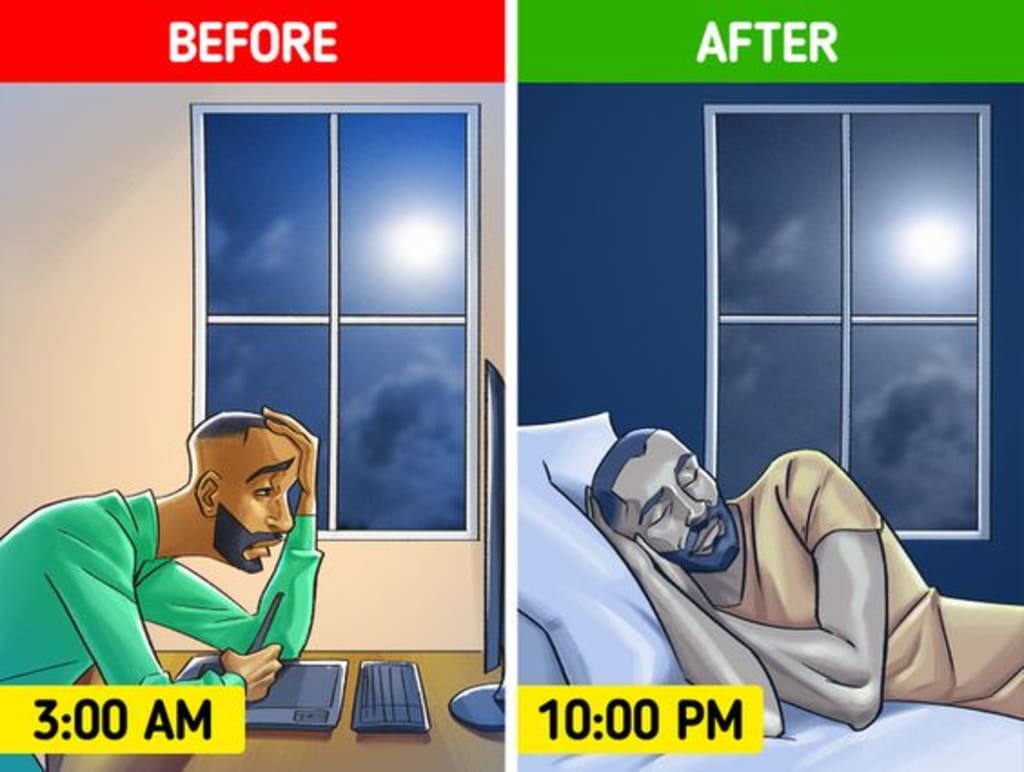The psychology of sleep
Why we need it and ow to get more of it...

Sleep is an essential part of our lives. We spend about a third of our lives sleeping, yet many of us struggle to get enough of it. Why is sleep so important, and what can we do to get more of it? In this article, we'll explore the psychology of sleep, including why we need it, the stages of sleep, and tips for improving our sleep quality.
Why Do We Need Sleep?
Sleep is vital for many aspects of our physical and mental health. It helps our bodies repair and regenerate, and it's crucial for cognitive functions like memory consolidation, problem-solving, and decision-making. When we don't get enough sleep, our ability to concentrate, learn, and retain information can be impaired.
Lack of sleep has also been linked to a range of health problems, including obesity, diabetes, cardiovascular disease, and mental health disorders like anxiety and depression. Sleep is even essential for our immune system, as it plays a vital role in fighting off infections and diseases.
The Stages of Sleep
Sleep consists of several stages, each with its unique characteristics and functions. The two main types of sleep are rapid eye movement (REM) sleep and non-rapid eye movement (NREM) sleep.
NREM sleep is further divided into three stages: N1, N2, and N3. During N1 sleep, we transition from being awake to being asleep. Our brain waves slow down, and we may experience hypnic jerks or sudden muscle twitches. In N2 sleep, our brain waves become even slower, and our bodies begin to relax further. In N3 sleep, also known as deep sleep or slow-wave sleep, our brain waves reach their slowest frequency, and our bodies reach a state of complete relaxation.
REM sleep, on the other hand, is characterized by rapid eye movements and heightened brain activity. During REM sleep, our brains become more active, and our muscles become paralyzed. This is the stage of sleep where we're most likely to dream.
The sleep cycle typically lasts around 90 minutes, and we go through several cycles per night. During each cycle, we move through the different stages of sleep, with REM sleep becoming more prolonged as the night progresses.
Tips for Improving Sleep Quality:-
If you're struggling to get enough sleep, there are several steps you can take to improve the quality of your sleep. Here are some tips:
Stick to a regular sleep schedule. Try to go to bed and wake up at the same time every day, even on weekends. This can help regulate your body clock and improve your sleep quality.
Create a relaxing bedtime routine. Establishing a relaxing bedtime routine can help signal to your body that it's time to sleep. This can include activities like reading, taking a warm bath, or practicing relaxation techniques like deep breathing or meditation.
Create a sleep-conducive environment. Make sure your bedroom is cool, dark, and quiet, and invest in a comfortable mattress and pillows. Consider using blackout curtains, earplugs, or a white noise machine to help block out any noise or light.
Limit screen time before bed. The blue light emitted by electronic devices like smartphones and tablets can disrupt your body's production of melatonin, a hormone that helps regulate sleep. Try to avoid using electronic devices for at least an hour before bed.
Avoid caffeine and alcohol. Both caffeine and alcohol can interfere with your sleep quality, so try to avoid consuming them in the evening or close to bedtime.
Get regular exercise. Regular exercise can help improve sleep quality, but make sure to finish your workout at least a few hours before bedtime, as exercising too close to bedtime can have the opposite effect.
Conclusion
Sleep is a vital part of our physical and mental health, yet many of us struggle to get enough of it. By understanding the psychology of sleep and implementing strategies to improve our sleep quality, we can reap the many benefits that sleep has to offer. This includes improved cognitive function, better physical health, and reduced risk of mental health disorders.
If you're struggling to get enough sleep, try implementing some of the tips discussed in this article. Remember to be patient with yourself, as improving sleep habits can take time. By sticking to a regular sleep schedule, creating a relaxing bedtime routine, and creating a sleep-conducive environment, you'll be well on your way to getting the restful sleep you need. With persistence and dedication, you can improve your sleep quality and achieve a happier, healthier life.





Comments
There are no comments for this story
Be the first to respond and start the conversation.